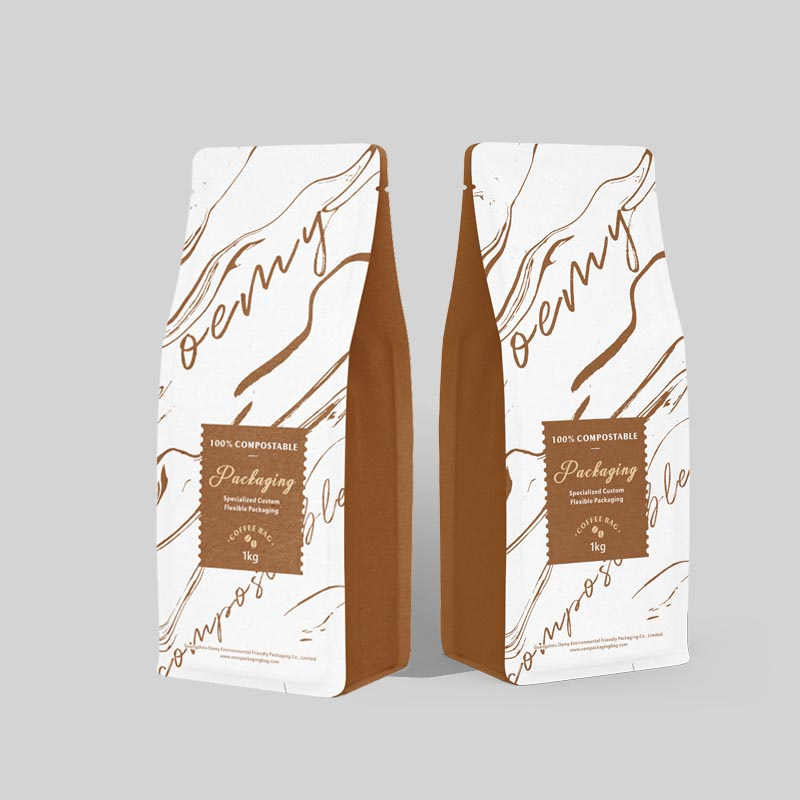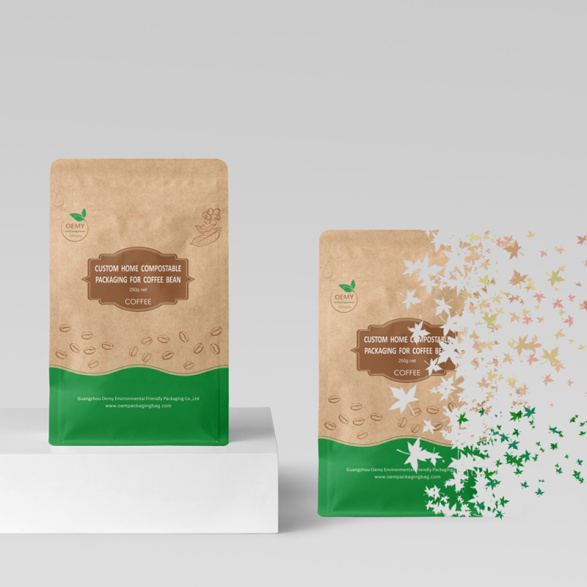
The coffee industry's demand for eco-friendly packaging has soared to new heights as coffee lovers around the world continue to seek their daily dose of caffeine. As people become increasingly aware of the negative impact single-use plastics and non-recyclable materials have on the planet, coffee companies have been actively looking for innovative solutions to reduce their environmental impact.
One of the most promising and widely adopted solutions in the coffee industry is the use of compostable packaging materials. Compostable packaging is made from organic materials such as plant fibers or bio-based plastics, which naturally break down into nutrient-rich compost when exposed to certain environmental conditions. Not only does this alternative packaging reduce the amount of waste sent to landfill, it also helps improve soil quality when properly composted.
One of the main advantages of compostable coffee packaging is its ability to solve the problem of single-use plastic waste. Traditional coffee packaging, including single-serve coffee capsules or coffee bags, are typically made of plastic and aluminum and take hundreds of years to break down. In contrast, compostable coffee packaging breaks down within months or even weeks, significantly reducing environmental impact and carbon footprint.
Several major coffee companies have adopted compostable packaging as part of their sustainability efforts. For example, well-known coffee brand Nespresso has launched fully compostable and biodegradable coffee pods made from plant materials. The company has a dedicated recycling program and works with local composting facilities to ensure its packaging is properly disposed of and composted.

In addition to compostable packaging, other eco-friendly alternatives are becoming increasingly popular in the coffee industry. One notable example is the use of recyclable materials for coffee cups and lids. Disposable coffee cups are notorious for their low recycling rates due to the difficulty of separating the plastic lining from the paper. To solve this problem, some companies have developed cups and lids made from recycled paper without using plastic liners. These materials can be easily recycled and reincorporated into the paper production process, closing the loop and reducing waste.
Additionally, innovative designs and materials are emerging to make packaging more sustainable. Some companies are exploring the use of plant-based and biodegradable plastics derived from renewable resources such as cornstarch or sugar cane. These plastics have similar properties to traditional plastics but have a significantly lower environmental impact. Other companies are experimenting with paper-based packaging solutions, using sustainable forestry practices and printing technologies to minimize their ecological footprint.
While adopting eco-friendly coffee packaging is certainly a positive step forward, challenges remain. One of the main concerns is how consumers properly dispose and compost these materials. Without proper composting facilities, compostable packaging may end up in the regular waste stream, negating its environmental benefits. It is critical for coffee companies to educate consumers on the importance of composting and provide easy-to-use composting options to ensure the successful implementation of these packaging solutions.

Overall, the coffee industry is making significant progress in adopting environmentally friendly packaging solutions. Compostable packaging made from organic materials and recyclable and sustainable alternatives are reshaping the way coffee is packaged and consumed. However, collaboration between companies, consumers and waste management systems is crucial to maximizing the positive impact of these initiatives. As coffee lovers, we can contribute to a more sustainable future by choosing brands that prioritize eco-friendly packaging and responsible disposal of coffee waste.
Post time: Oct-26-2023




